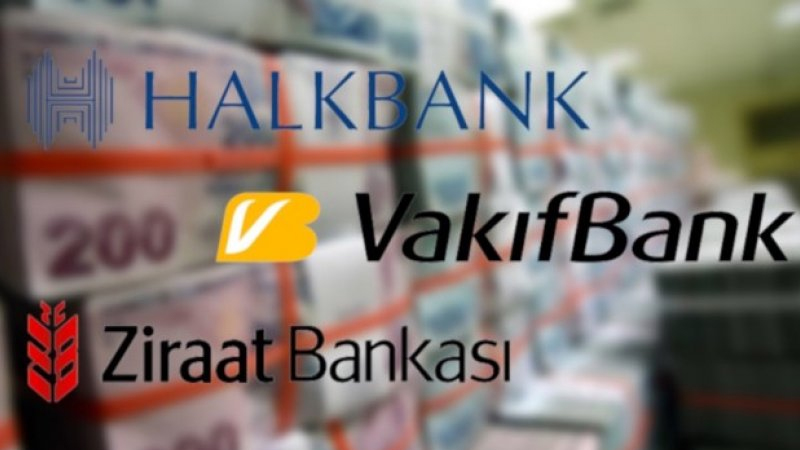Turkish Banks’ Margin Defense Looks Solid Despite Rising Rates
(Bloomberg Intelligence) — Akbank, Garanti, Isbank and Yapi Kredi’s shortened asset-liability- duration mismatches place them well to navigate rising rates, and added to sustained demand for non-retail credit, bode well for 2024 net interest margin (NIM) prospects. CPI-linked-bond income should be stable in 2024, strengthening our view that flat (at least) NIM looks realistic. (12/01/23)
1. Turkey 500-Bp Rate Shock May Cost Banks $3 Billion, 6.5% Equity
Turkish banks’ sensitivity to interest-rate moves, detailed in their annual reports, help explain sudden shifts in monetary policy as they consider the relevant repricing and maturity of the entire banking book, yield curve and basis risks. The six largest banks face a total loss of almost 90 billion lira for each 500-bp increase in rates, according to the latest figures. Garanti appears the least sensitive, with its potential loss equivalent to about 3.3% of total shareholder equity. That compares with 4-7% at its closest private peers, with state-owned Halkbank’s 10%-plus standing out.
Turkey’s central bank unexpectedly hiked its key rate by 500 bps to 50% on March 21, with further tightening possible as inflation shows no sign of easing. (03/25/24)
2. Isbank to Akbank, $20 Billion Mismatch a Source of Margin Pain
Analysis of Turkish banks’ mismatch between asset-liability and duration suggests the dent to margin from the recent 500–bp rate hike could be short-lived. Liabilities maturing within three months at the four largest domestic lenders exceeded assets with similar durations by about 650 billion lira (a negative-duration mismatch) as of 2023, with the mismatch turning positive for the remaining maturities. Isbank has the most significant short-term negative-duration mismatch (16% of total assets), followed by Yapi Kredi (13%) and Akbank (3%). Garanti stands out with a positive mismatch of 1%.
A negative-duration mismatch puts greater pressure on margin as a result of rising funding costs, given deposits reprice faster than assets. We note the lack of a currency split limits analysis of the rising lira-rates effect. (03/25/24)
Rising funding costs — amid interest-rate hikes and intensifying competition — are a major (short- term) drag on Turkish banks’ net interest margins, with an average 46% of liabilities for the four largest lenders maturing within three months (as of 3Q). Garanti appears the most immune to upward deposit repricing with a 39% share of deposits due in less than three months. Akbank features on the other side of the scale with almost 55%.
Garanti also has the largest share of non-interest bearing liabilities (NIBL) — 49% — providing a critical cushion in the rising-rates environment. Isbank’s share of short-term funding and NIBL is similar, at about 45-46%. Akbank’s share of the latter is the lowest among peers. (12/01/23)
4. Akbank’s Asset-Repricing Capacity Stands Out Contributing Analysts Uzair Kundi (Banks)
Turkish banks’ efforts to shorten the maturity profiles of their assets positions them well to navigate the rising interest-rates environment. In their 3Q earnings reports, the four largest Turkish banks revealed that, on average, 46% of total earnings assets (mostly loans and financial securities) are set to mature within less than three months. Akbank (56%) and Garanti (52%) are the most exposed in the short term to interest-rates moves. Garanti also has the largest (40%) share of assets maturing within a month.
Of note, Akbank’s share of non-interest-bearing assets is the lowest (19%) vs. 34-40% on average for peers. (12/01/23)
5. NIM a Game of Two Halves in 2023
Turkish bank net interest margins were been to subject to significant volatility and pressure in 1H due to regulatory measures, with a long awaited U-turn in policymaking and rates normalization driving the 2H recovery. Akbank reported the sharpest net-interest-margin rebound in 3Q (300 bps to 6.79%), largely supported by a CPI-linker contribution and the faster repricing of loans vs. deposits. Yapi Kredi’s low cost of deposit (200 bps below the sector average) drove its NIM to 5.6%, surpassing the full-year target. Garanti’s NIM was more stable throughout 2023, with the core spread likely to narrow less than anticipated by management.
6. CPI-Linked Bonds to the Rescue… Again
Turkish banks’ large CPI-linked bond portfolios — making up 8-9% of Yapi Kredi and Akbank’s respective total assets — have been notable revenue contributors over the past two years amid elevated inflation. That income accounted for almost half of year-to-date net interest income at Garanti, and amounted to 80%-plus at Yapi Kredi and Akbank. The former values its portfolio based on a 55% rate of inflation, while the latter two use a 60% figure.
With consensus expecting Turkish inflation to stay above 50% in 2024, CPI-linked bond portfolios will continue to support the banking sector’s net-interest-income generation. A significant drop in income from these portfolios is likely in 2025, when inflation is projected to be 25%, with core spread normalization and volume rebounds the key offsets. (12/01/23)
Garanti Typifies CPI Linked Bonds Impact
7. Corporate-Loan Demand Augurs Well for Margin
Expanding their loan books in the rising rates environment is critical for lenders’ core spread (the difference between asset yields and deposits costs) and margin management, with elevated funding costs denting demand. This is evidenced in Turkey, where the annual growth rate of retail loans dropped to below 6% from almost 20% six months prior, following central bank interest-rate hikes to 40% from 8.5%. Demand for commercial loans in the period appears relatively stable and we see the segment being a major growth driver due to the capacity of corporates to pass on rising funding costs to customers.
Corporate lira-denominated loans make up 35% of Turkish banks’ total, on average, and the retail segment about 22%. Isbank revealed during the 3Q earnings call that non-retail loans are critical to offset rising funding costs. (12/01/23)
Bloomberg Intellligence
